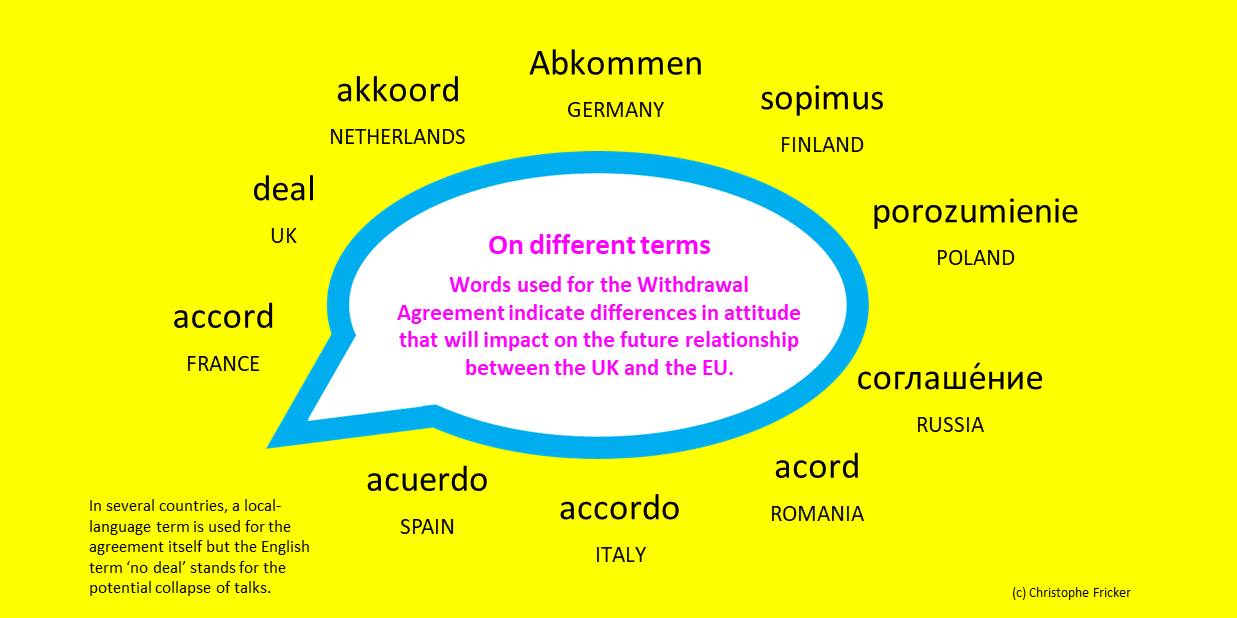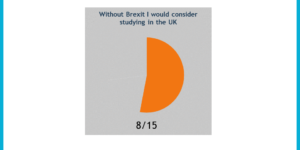Why has it been so difficult for Theresa May to convince her own MP’s of the importance of the Political declaration about the future relationship between the UK and the EU? The answer to this question has a lot to do with the view of politics that currently dominates public discourse in Britain. In this post I want to explore what it means to be ‘political’ in the UK today.
Let us start with recent events in the House of Commons. Members of the UK Parliament voted against the Withdrawal Agreement negotiated by Prime Minister Theresa May for a variety of reasons. Chief among them was the backstop in which, many felt, Britain could be ‘trapped’ forever. May insisted the Political Declaration attached to the Withdrawal Agreement showed that neither her government nor the EU would ever want to see the backstop used. But MPs were unconvinced, and Brexiteers set up a binary choice between much-needed legally binding change and the feeble political declaration.
This binary choice is itself a trap. Let’s have a look at the language used in the debate, and then zoom out to see the bigger picture. This will allow us to recognise how tricky it is for both Brexiteers and Remainers to act right now.
Legalise it
In the Commons debate of 29 January 2019, the Prime Minister declared that she would seek a ‘legally binding change to the withdrawal agreement.’ Many members welcomed this course of action. They see it as the only ‘clear’ path forward on which ‘significant’ progress can be made towards ‘delivering’ on the Brexit referendum result. ‘Legally binding change’ is discussed alongside efforts at bringing ‘together those on the Brexiteer and remain sides of the argument.’ So in terms of language and discourse, ‘legally binding change’ carries connotations that are altogether positive. The phrase thus established has been taken up by a number of MPs. In addition to those already quoted they include Brexit heavyweights Iain Duncan Smith and Dominic Raab.
The alternative is presented as more of the same, undesirable, and deceitful: a ‘further exchange of letters,’ and ‘glorified letters’ at that. The political declaration is ‘half-baked,’ ‘not worth the paper’ it is written on, essentially ‘meaningless.’ All these are negative characterisations, resulting in the opposition between the ‘legal force’ that the declaration lacks, and its ‘political’ nature, which is billed as a problem.
Politics as problem
This kind of language paints politics as such as the stumbling block. It is not the substance of the declaration that many MPs ostensibly object to, but its nature as political. Rather than particular words or phrases, its very status as political makes it meaningless.
It is a form of professional suicide if politicians themselves adopt the language of derision towards their task. ‘Playing politics’ has become a frequently-used term even in parliament. ‘Politics’ is said, by politicians, to have tragic consequences, and come in the form of ‘disgraceful’ hoaxes and rudderlessness. The Prime Minister – the politician in chief, as it were – points the gun quite decisively at her own foot. She levelled this accusation against Labour leader Jeremy Corbyn:
all we have seen from the Labour party and from him is them playing politics with [Brexit]. One minute, they want to accept the referendum, the next they want a second referendum. One minute, they want to say that free movement will end, the next they say that free movement is still on the table. One minute, they want to do trade deals, the next they want to be in a customs union that will stop them from doing trade deals.
Prime Minister Theresa May in the House of Commons, 22 October 2018
May did not call on the Labour leader to stop dithering and be a better politican. She told him to stop being a politician and get serious. ‘Playing politics’ has become synonymous with ‘doing the work of a politician,’ and this work is dirty work. In Parliament itself, the Leader of the House had already set a precedent for this use of the term ‘politics.’ Some have criticised it, notably Lord Adonis, but they have done so outside the Chamber. (Labour’s Alex Norris once came close.)
If politicians have no faith in politics, why should others.
Legally binding referendum
This trend of Brexiteers talking politics down is surprising given that the most obviously effective political declaration is their very own rallying cry: that we must honour the referendum result. The outcome of an advisory referendum was given legal force as a result of political declarations, a commitment on the part of politicians doing their job. These declarations are the prime example of a ‘political reality’ — of declared political intentions — bringing about a new law. There is nothing to suggest that the political declaration accompanying the withdrawal agreement would not similarly be translated into legal text.
In short: There is no hard border between politics and the law. In the debate our the backstop, Brexit supporters say there is one, and they are terrified by it. But their own success of passing the European Union (Withdrawal) bill is evidence to the contrary.
Democracy deficit means politics surplus
Politics has had a bad name for a while. In fact, one of the reasons why the Leave campaign was able to win the referendum in the first place was that it simply pointed out that the EU was a political project (and they continue to do so, here and here and here and here).
When, in the run-up to the referendum, Leave campaigners were asked which bits of EU legislation they wanted to abolish in their quest to take back control of ‘our laws’, they never gave a specific answer. (There was the straight banana joke, but that was about it.) The problem, it was suggested, wasn’t that the laws were bad, or that law-making itself is bad, but that laws were made by the proponents of a political project, rather than ‘the people’ of one nation state.
This was the trap that the Leave side constructed for Remainers: when Remainers pointed out that, contrary to many accusations, the EU is democratic (that the European Parliament is directly elected and the Commission has much greater democratic legitimacy than the UK government and so on), they confirmed that it was political — dirty.
Arguably the Remain campaign was aware of this problem and tried to circumvent it by emphasising economic questions rather than the EU’s essentially political nature. The Remain campaign strategy was built on hope that people would countenance the EU’s politics if the economic benefits were made sufficiently clear. As we all know, this strategy failed quite spectacularly. As we can now see from our analysis of the term ‘political,’ it had little chance of succeeding without taking on the real challenge of redefining the UK’s ‘politics.’
Brexiteers have in this one sense been more honest in that they have acknowledged the EU’s politics, even when they have cast it as something intrinsically negative.
The Remain campaign did not have the determination to find its way out of the Catch-22 situation set up by Brexiteers ahead of the referendum. It was deemed impossible to counter the accusation that the EU was undemocratic because pointing out that the European Parliament was both powerful and democratically elected would have simply confirmed the super-accusation of the EU as political.
What we have learned
Pro-EU campaigners cannot succeed without speaking up for politics!







